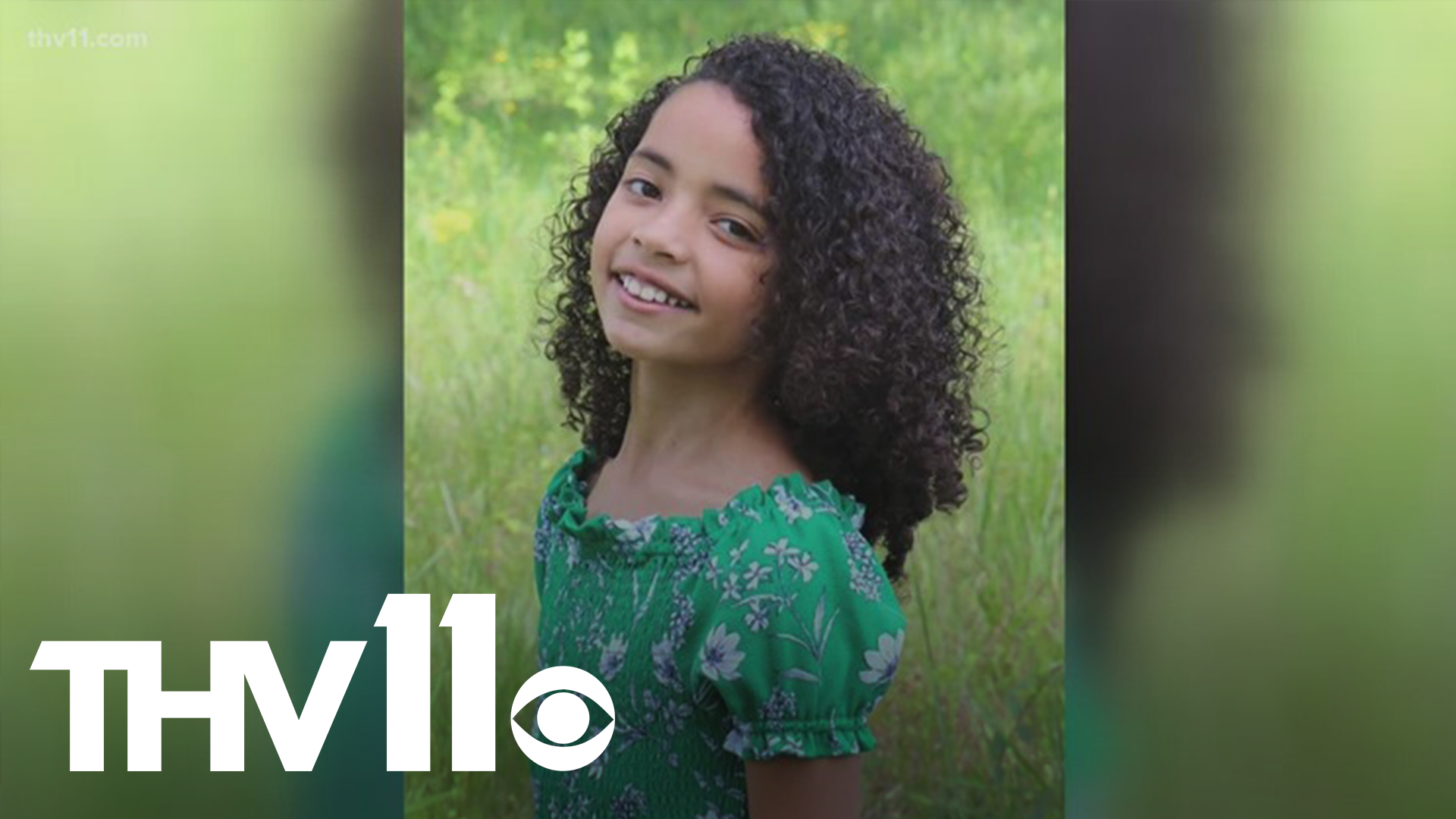CONWAY, Ark — A Conway woman posted on social media how she wanted to help non-Black foster parents with natural hair textures. She's now collaborating with The Call, a faith-based organization assisting foster parents to offer lessons and services.
Nykyda Dixon is a licensed cosmetologist.
She's been doing hair since she was 12 years old.
RELATED: Black-owned hair salons, barbershops provide 'safe haven' for community in northwest Arkansas
"I had this idea like five years ago, but I was kind of shut down by somebody I looked up to in the hair industry to do it. They shut me down. I shut myself down. Speaking with someone else in the hair industry, it made me realize it's never too late," said Dixon.
She posted in a Facebook group, not realizing her post would gain a lot of attention from people who could relate.
"You feel great when your hair is done. That's with anybody. To get into the adoption agencies and the foster care, these people know nothing. Especially if they're going to adopt a biracial child. They don't know where to begin," said Dixon.
Team members from The Call noticed her post and wanted to collaborate.
Louise Witcher is the county coordinator for Conway and Faulkner County. She says The Call recruits, trains, and supports foster and adoptive parents. They assist DHS at no cost.
She says Conway and Faulkner County have more white children that need fostering, but that means there's more of a need for those who aren't, to not be neglected because of their difference in hair types.
"We are predominately a white community. Overall, children that come into care are Caucasian. That doesn't negate the few that still need help because all it takes is one and then you need a class," said Witcher.
She says she had one parent who had an African American child whose hair they were washing every night. Before she knew it, the hair was so dry and unmanageable.
When she saw Dixon's post, she was excited that there was someone wanting to give back with her expertise. She says one person stepping up can make a world of difference in a child's life and not add more trauma.
"As I tell my families, you never know when that next child or that next placement you have could be someone that's biracial or Black and they just need some help with managing their hair. You can't do it the same for sure," said Witcher.
Megan Hurtt is the foster family support coordinator for The Call and is setting up a class with Dixon.
Hurtt is fostering an African African baby boy and says it's beneficial to know the differences in hair types and how to take care of them.
"We don't do that much right now because he's nine months old, but as he becomes older, this is going to become more and more essential for him to just build confidence and self-esteem," said Hurtt.
Brandy Fowler is the administrative assistant for The Call has three adopted biracial daughters ages, 16, 10, and 9.
She says it's taken her years to understand their hair. It's only because she has several nieces who are also biracial, and their father owns a barbershop, that she's had less of a challenge.
She allowed her 9-year-old to straightened her hair over the weekend.
Last night, she didn't want to wash it, knowing it would revert back to its original curl pattern. She wanted to keep it straight to show a friend.
"My husband comes in the kitchen and he's like, 'You have to wash your hair!' and I tried to explain to him, 'Honey, her hair is not like your hair. She does not have to wash it every single night,'" said Fowler.
Her husband figured because they were outside playing it must be dirty. Fowler explained to him that their hair produces oil while the girl's hair is more dry and doesn't have a lot moisture. Washing the hair every night would result in it drying out more.
Fowler took her girls to get their hair done where she went at first.
She says she didn't know where to take them where their hair type is catered.
"Finally, about three years ago, I decided to learn how to cut their hair in its natural state, just because whenever I would take them, they [the salon] would straighten it to cut and when it was back curly, they'd have long strands, short strands. The cut was never right," said Fowler.
It's because of research on her own that she was able to adapt.
She still doesn't know how to braid, but she says she does the best that she can.
Her 9-year-old also got to a point where she didn't want to do anything with her hair and asked to have it all cut off.
"African American hair, that's a part of your heritage and you take pride in that. And Caucasian people, of course we love our hair, but it is nothing like the pride that African Americans take in their hair," said Fowler.
These are the reasons Dixon wants to help.

